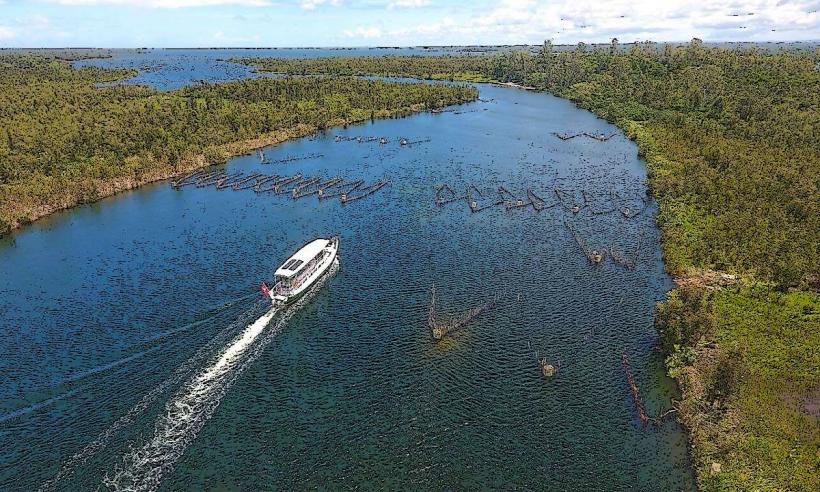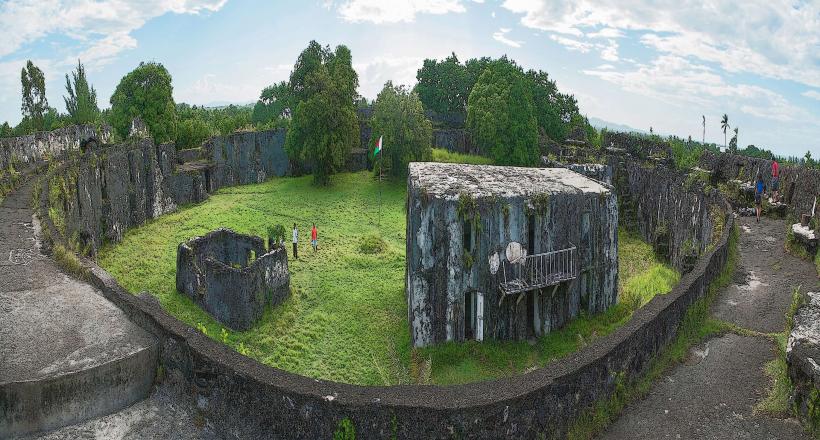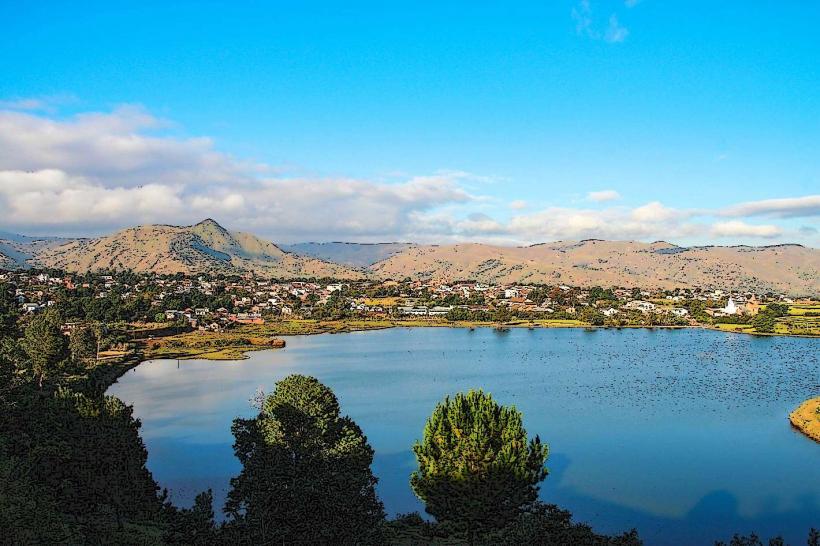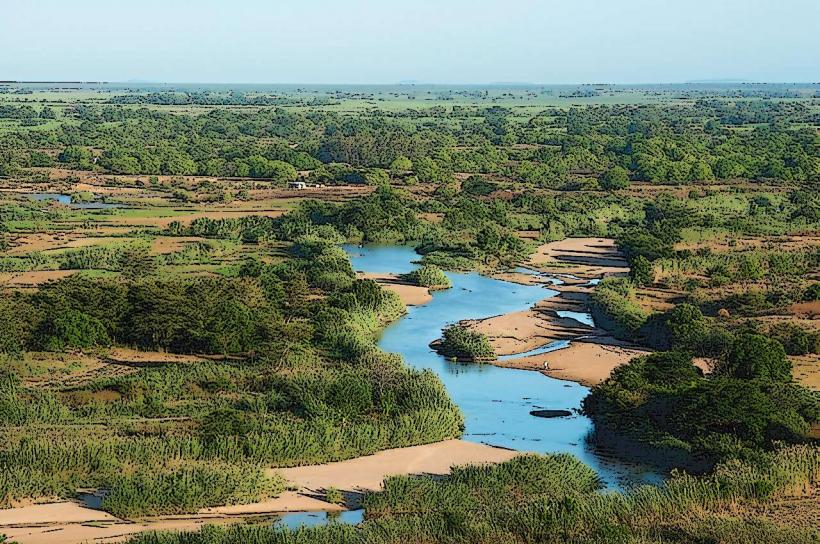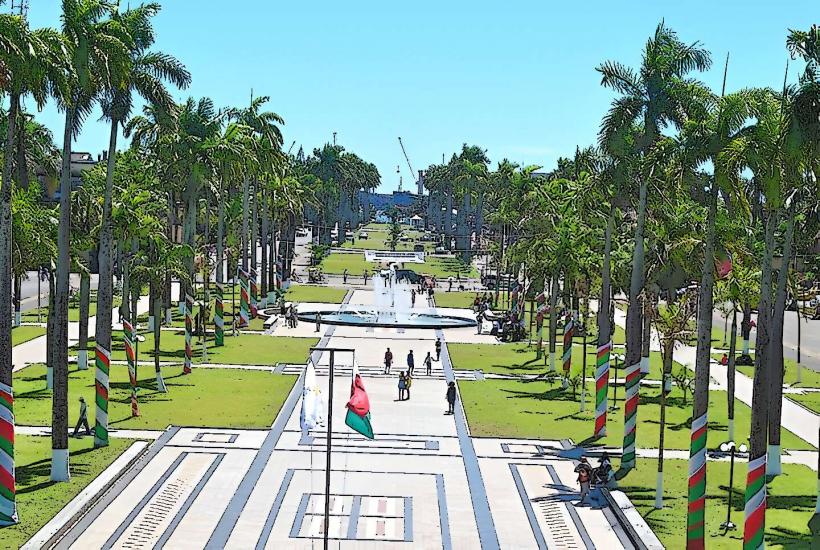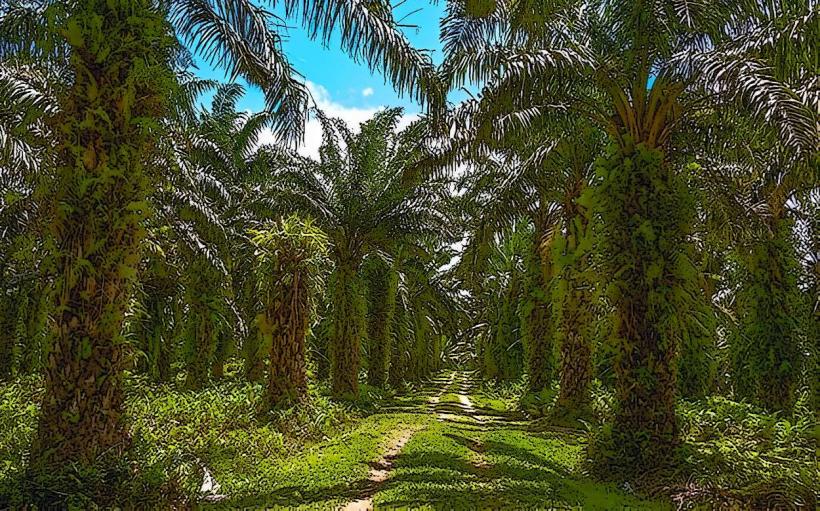Information
Landmark: Ivoloina ParkCity: Toamasina
Country: Madagascar
Continent: Africa
Ivoloina Park, also known as the Ivoloina Zoological Park, is a biodiversity conservation and ecotourism destination located near Toamasina (Tamatave) on the east coast of Madagascar. It serves as a sanctuary for Madagascar's unique flora and fauna and is an educational hub promoting environmental awareness. Here’s a detailed overview:
Location and Accessibility
Ivoloina Park is situated approximately 12 kilometers (7.5 miles) north of Toamasina, making it easily accessible from the city. The park is set within a lush, tropical setting, nestled between hills and the Ivoloina River. It covers around 282 hectares (700 acres) of primary and secondary rainforest, wetlands, and agricultural landscapes.
History
Origins:
Originally established as a forestry station during the French colonial period, the park was later transformed into a zoological and botanical park.
Conservation Focus:
In the 1980s, Ivoloina became a conservation site under the management of the Madagascar Fauna and Flora Group (MFG). Its mission is to protect Madagascar’s endangered species and educate locals and visitors about environmental conservation.
Flora and Fauna
Ivoloina Park is a living showcase of Madagascar’s extraordinary biodiversity. It provides refuge to several endemic species that are endangered or threatened:
Lemurs
The park is renowned for its lemur populations, with species including:
- Black-and-white ruffed lemur (Varecia variegata): Critically endangered.
- Crowned lemur (Eulemur coronatus): A rare species found in Madagascar’s dry and transitional forests.
- Common brown lemur (Eulemur fulvus): Known for its adaptability to various environments.
- Red ruffed lemur (Varecia rubra): Native to the Masoala Peninsula, this species is critically endangered.
Some lemurs in the park are part of captive breeding programs or have been rescued from the pet trade.
Other Wildlife
- Reptiles: Includes chameleons, geckos, and snakes such as the Malagasy tree boa.
- Amphibians: Various frogs endemic to Madagascar.
- Birds: A wide range of bird species, including herons, kingfishers, and Madagascar wagtails.
Botanical Gardens
The park’s botanical section features:
- Native plants: Including medicinal and economically significant species.
- Fruit trees: Mango, jackfruit, and other tropical varieties.
- Exotic species: Highlighting the diversity of Madagascar’s flora.
Features and Activities
Lemur Islands:
These are small islands within the park where lemurs roam freely, offering visitors a chance to see these animals in a semi-natural environment.
Nature Trails:
Ivoloina features several well-marked trails, allowing visitors to explore the forest and discover its unique ecosystem. Trails vary in difficulty, accommodating both casual walkers and avid hikers.
Educational Facilities:
- Environmental Education Center: A space for workshops, presentations, and interactive exhibits about Madagascar’s ecosystems and conservation efforts.
- Children’s Programs: Activities designed to engage young visitors in environmental learning.
Ivoloina Model Station:
A sustainable agriculture demonstration area where visitors can learn about eco-friendly farming techniques and agroforestry practices.
Aquatic Activities:
The park has a lake and the Ivoloina River, where visitors can enjoy canoeing or observe aquatic wildlife.
Camping and Picnic Areas:
Ivoloina offers facilities for picnics and camping, providing an immersive experience in the natural surroundings.
Conservation Efforts
Ivoloina Park plays a critical role in the conservation of Madagascar’s unique biodiversity:
Captive Breeding Programs:
Focused on critically endangered species like the black-and-white ruffed lemur.
Habitat Restoration:
Efforts include reforestation projects to restore degraded areas of the park.
Research:
The park serves as a base for scientific studies on Madagascar’s wildlife and ecosystems.
Community Engagement:
Programs aimed at educating local communities about sustainable resource use and the importance of protecting Madagascar’s natural heritage.
Tourism and Accessibility
Ivoloina Park is a popular destination for both local and international visitors. It provides a family-friendly environment, making it an excellent choice for nature lovers, researchers, and eco-tourists. Guided tours are available, offering insights into the park’s history, wildlife, and conservation efforts.
Challenges
Funding:
The park relies heavily on donations, grants, and ecotourism revenue, which can fluctuate.
Environmental Threats:
Issues like deforestation and habitat loss in surrounding areas impact the park’s biodiversity.
Capacity Building:
The need for more local and international collaboration to expand conservation initiatives.
Future Prospects
Efforts are underway to enhance Ivoloina Park’s infrastructure and programs, including:
- Expanding conservation breeding programs.
- Increasing eco-tourism opportunities.
- Strengthening environmental education initiatives.
Conclusion
Ivoloina Park is a vital hub for biodiversity conservation, environmental education, and sustainable tourism in Madagascar. Its rich natural beauty, coupled with its commitment to protecting Madagascar’s unique wildlife, makes it an important destination for visitors and a cornerstone of conservation efforts in the region.


